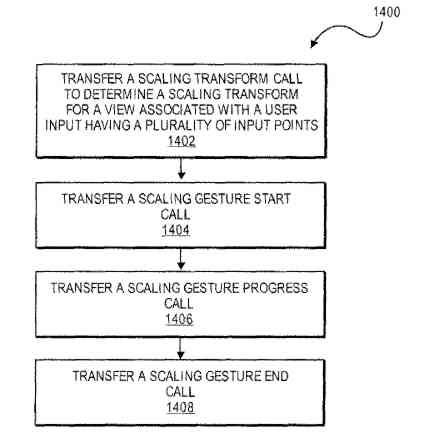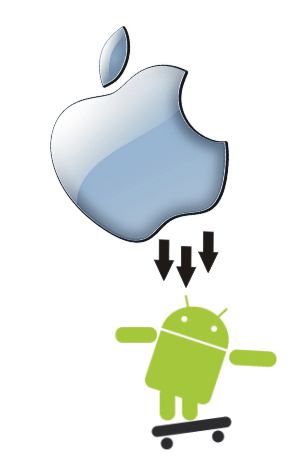| Apple's Patents Crumble - Pinch Zoom Rejected |
| Written by Alex Armstrong |
| Friday, 21 December 2012 |
|
Another Apple patent has been rejected by the patent office. This time it is a key one in its war with Android, pinch to zoom.
Apple has been conducting a war against Android that has been largely based on its collection of patents, but to any programmer it is fairly obvious that these are mostly not worth the paper they are written on. As you read them you think either "this isn't new" or "this is obvious". Now the US Patent Office seems to be agreeing. It has rejected all of the Apple claims in its application for patent number 7,844,915. The reason for rejection is that it failed the crucial test of “prior art patent and printed publication cited". There is evidence that someone used a similar technique before Apple and, even if it isn't considered to be exactly the same, its existence makes Apple's implementation too obvious to be patentable. This doesn't come as a huge surprise, but if any of Apple's patents had credibility it was pinch to zoom. However, as many suspected, Apple didn't invent it.
The flow diagram from the patent for the zoom gesture
The patent was one of the three that Samsung was found to have infringed back in August. The "rubberbanding" patent (also known as overscroll bounce) patent was rejected back in October. This leaves only one remaining patent and the prospects for Samsung and Android in general are looking much better as a result. However, the rejections are only preliminary and they can be overturned. Samsung is already asking for a retrial and Apple will no doubt appeal the patent rejection. These matters are never quick to settle, but Apple's claim to have invented many of the technologies that are basic to touch and gesture control seems to be under attack. The problem with software patents is that they can be created by simply wrapping up well known ideas in arcane language. The Patent Office seems to just accept them because this is the easiest thing to do when it doesn't have the time or skill to determine if a patent is truly warranted. Only when the patent comes to court does the real test of its validity seem to start, and in this case the derivative nature of the idea soon became clear. The problem with this approach is that it allows big companies to pressure smaller companies to settle on the basis of patents that, if challenged, would probably be rejected. The smaller companies simply pay up to avoid the huge legal costs rather than testing the patents. This isn't a good way to run a patent office.
More InformationRelated ArticlesHTC and Apple Settle Patent Dispute Patent Office Invalidates Apple's Rubber-banding Patent Find Prior Art Added to Google Patent SearchTo be informed about new articles on I Programmer, install the I Programmer Toolbar, subscribe to the RSS feed, follow us on, Twitter, Facebook, Google+ or Linkedin, or sign up for our weekly newsletter.
Comments
or email your comment to: comments@i-programmer.info
|
| Last Updated ( Friday, 21 December 2012 ) |



